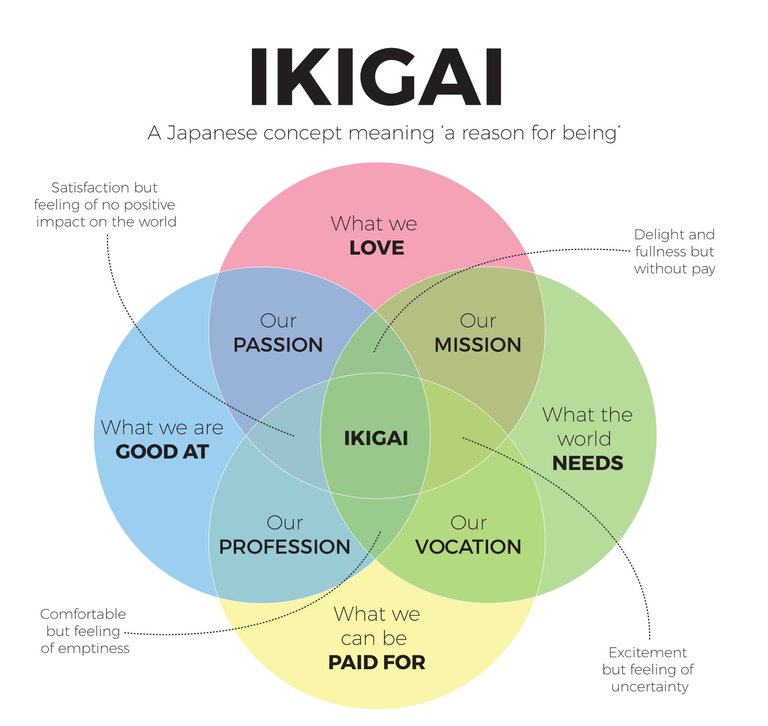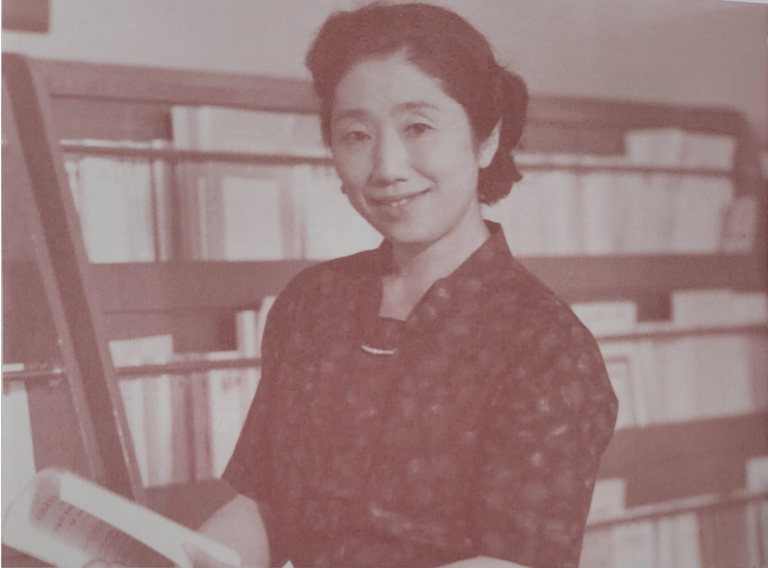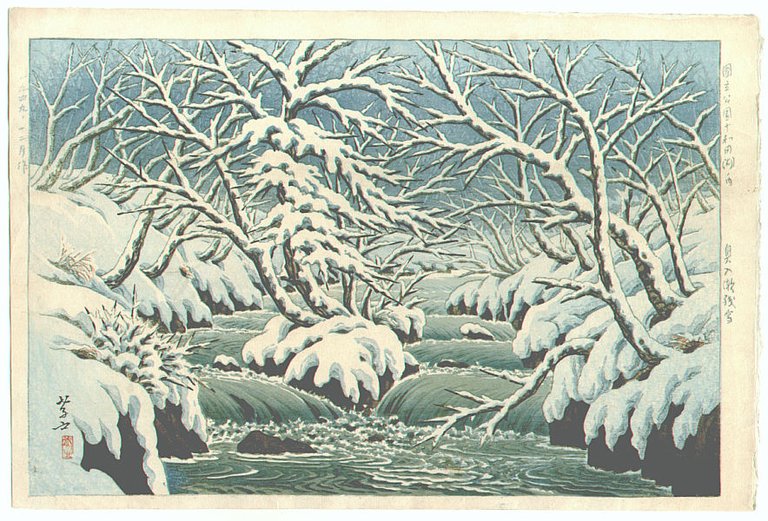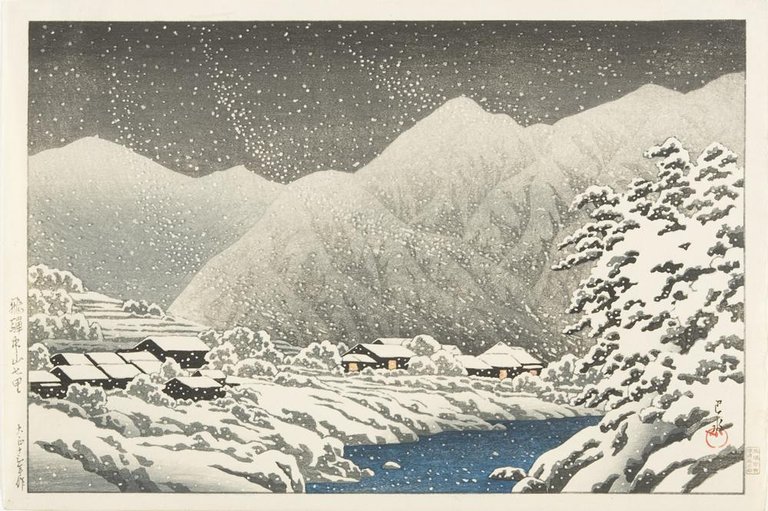Today in Japan, Jan 12 - The Essence of Ikigai
And here is your daily almanac for Friday, the twelfth of January 2024.
Today we delve into the profound contributions of Mieko Kamiya, a notable figure in the field of Japanese psychology. Born on this day in 1914, Kamiya is widely recognized for her exploration and development of the concept of Ikigai, a term that has gained global recognition for its deep-rooted significance in Japanese culture. She was a very bright woman and spoke multiple languages. Among her works was a translation of Marcus Aurelius's Meditations, which was one of her favorite books. She is mostly remembered today, however, for ikigai. Just within the past few years there have been an assortment of books on ikigai published all around the world so I'm sure you've heard of it.

Ikigai, loosely translated as "a reason for being," is a concept that Kamiya explored in depth, suggesting that discovering one's Ikigai is crucial to a fulfilling life. Her work emphasizes the importance of finding value and purpose in daily activities and the profound impact this has on mental health and wellbeing. Kamiya's theories offer insight into the Japanese psyche and continue to influence both psychological discourse and everyday life.
Kamiya's work in the field of psychology, particularly in post-war Japan, provided a much-needed perspective on dealing with trauma and finding meaning in life's challenges. Her legacy is a testament to the resilience and depth of the human spirit.

Also born on this day was Kentarō Haneda (1949-2007), a composer known for his remarkable contributions to the world of music, particularly in film and video game soundtracks. Haneda's work includes the soundtrack for the popular 'Wizardry' video game series, a testament to his ability to create immersive and emotionally resonant musical landscapes. His compositions continue to be celebrated for their creativity and depth.
Here's a nice tune he did for Space Cobra with Yuji Ohno.

Today's rokuyō is senshō (先勝), traditionally considered a day where the morning is auspicious, but caution is advised in the afternoon when the luck turns bad. (Read more about the rokuyō here)
On the old calendar, today would have been the second day of the twelfth month. About a month to go until the old New Year, which most of Asia still celebrates as Lunar New Year.
We are in the midst of Shōkan (小寒), the beginning of the coldest season, and the microseason shimizu atataka o fukumu (水泉動), when the spring water begins to stir. This time symbolizes the awakening and movement beneath the surface. Make no mistake, this is considered the cold time of the year—the coldest is still yet to come—but just like you can find the seed of the opposite color in each side of the yin/yang symbol, the Japanese of old recognized that even in this cold time, hints of the spring to come are already beginning.

Snow at Oirase at Lake Towada by Henmi Takashi

Here's a haiku from Takako:
箸とるときはたとひとりや雪ふり来る
hashi toru toki hata hitori ya yuki furi furu
as I take up my chopsticks
it hits me, i am alone—
the snow keeps falling

In the Snow by Kawase Hasui
Takako's husband died fairly young, leaving her a widow in her thirties. Her verse evokes the deep solitude felt in the quiet of a snowfall. The kigo (season word) snow for late winter, underscores the sense of isolation and reflection during the coldest time of the year

As we experience the chill of Shōkan and reflect on the stirring of spring water, let us ponder on the intertwining of solitude, purpose, and creativity, illustrated for us by the journeys of Kamiya, Haneda, and Takako. May their stories inspire us to embrace both the solitary and purposeful aspects of our lives.Be well, do good work, and stay in touch.
❦
 |
David LaSpina is an American photographer and translator lost in Japan, trying to capture the beauty of this country one photo at a time and searching for the perfect haiku. He blogs here and at laspina.org. Write him on Twitter or Mastodon. |
You received an upvote of 90% from Precious the Silver Mermaid!
Please remember to contribute great content to the #SilverGoldStackers tag to create another Precious Gem.
I have once heard about the Ikigai
That is a tradition that the elders once do participate and it has recently gained attention worldwide and the Japanese has passion for it because it gives value and joy to their life's.. can an outsider participate on the Ikigai? I really love to know
Sure, anyone can follow it. It is just an philosophic idea, so even non-Japanese can do it.
Nope, never heard of that before. The concept maybe, but not by that name. Very interesting!
Really? Hmm... maybe I'll have to write more about it in the future.
I actually heard about a Japanese word the other day, it was in a meme and I can't remember what it was now, but it made me think of you.
If you remember, feel free to ask.
I think it was this one:
Kuchisabishii
The Ikigai concept is quite popular in North America, I believe. I enjoy words in Japanese, such as 'yarigai' and 'tabegai.' Takako-san's haiku is sad but really beautiful.
I agree, on both counts.
She wrote a lot of haiku, but most of them are sad, talking about how she misses her husband or her loneliness.
I myself did not know anything about it earlier, now after reading your post, my knowledge has increased.